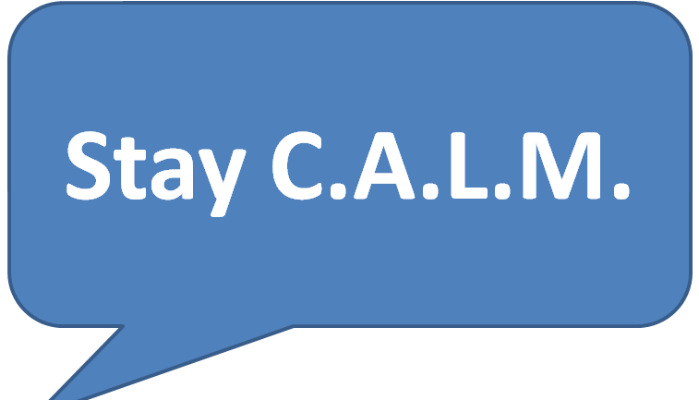
Communication is one thing we do all the time alone or with others. It’s one of the most critical things that can make or break an organization, a family, or a friendship. And, it’s the one thing that didn’t appear in the curriculum while most of us were in public school.
I grew up with a model of communication where people used guilt and manipulation, where the glass was always half empty and where yelling was the norm so I decided to study communication in college. However, in all the classes I took as an undergraduate as well as during my master’s program, nothing was ever mentioned about the impact of the “self” on the outcome of the communication. Nobody had spoken about the correlation of one’s inner life with one’s ability to communicate effectively. And there is a correlation because how you say what you say matters™and how you feel and what you think determines all of that.
The greatest benefit arises when you are aware and fully focused in the now. Some call it Mindfulness (being with what is in the present moment), Ram Dass says, “Be Here Now” and Thich Nhat Hanh refers to it as “Present Moment, Wonderful Moment.” It’s no big secret. What you do with it is what matters. The key is to be conscious in every moment.
Since you likely talk to yourself more than to anyone else, be sure to tune into your self-talk and clear your mind of negative thoughts and attitudes. If you don’t like what you’re saying to yourself change the channel. When communicating with others, stay focused on what you hear, what you understand is being said and how you choose to respond in the moment. If you find you’re having trouble staying in the present say the words “Be Here Now” (or whatever works for you) as a trigger to bring you back into the present moment. This will help you center yourself so you’ll be able to be open to what’s being said and how to best respond.
For example, an employee comes storming into your office upset about a decision you recently made. He’s really angry and is clearly attacking you. Your first thought is likely to defend your position which you do. This leads to a bigger argument, more defending and attacking and ultimately no one listens and nothing is accomplished.
What if you were to take a more centered approach and via your self-talk, youC.A.L.M. yourself? Let the employee bitch, moan, dump and complain. All the while you are:
Controlling your response (don’t react)
Assessing the situation (look beyond the anger and ask questions)
Listening carefully with integrity (keep an open mind)
Moving toward understanding (be pro-active)
Once the verbal attack is complete, respond with empathy paying attention to your tone of voice so you don’t sound condescending. Your response may go like this, “It sounds like you’re unhappy about this; let’s explore how to handle this.” You’re showing that you care. (Be sure you really do care because if you don’t it will come through in your voice and body language and you will have defeated the whole interaction.) By not becoming defensive you have kept your power, helped defuse the employee’s anger and set the stage for an interaction where the probability for understanding has increased.
Remember, being fully present so you can control your self-talk helps you be a better communicator!
